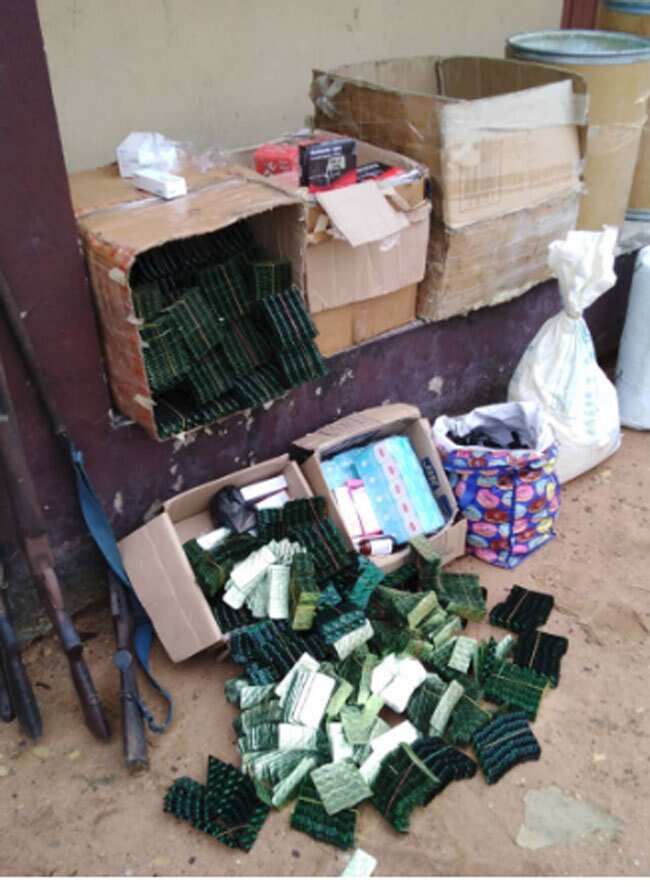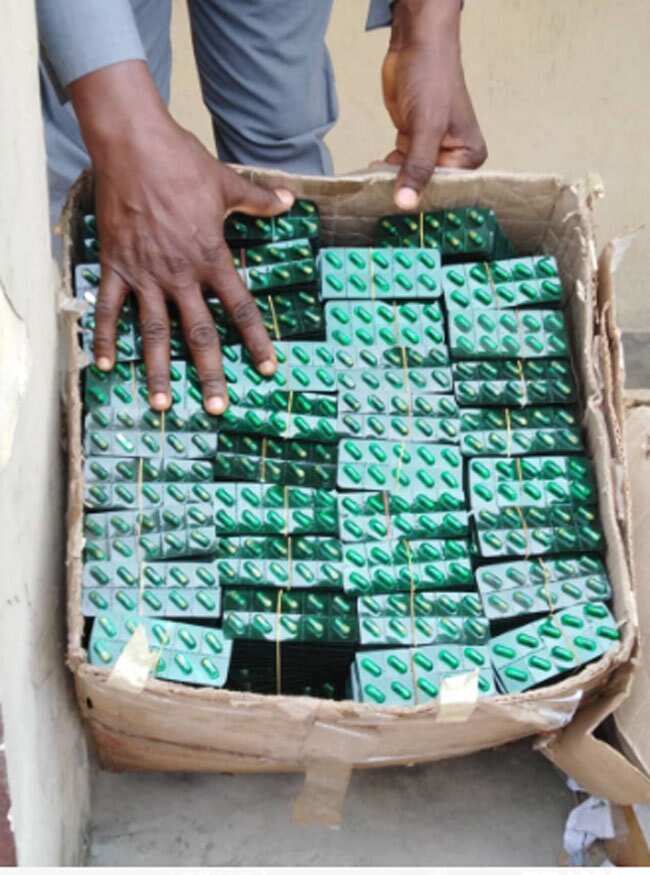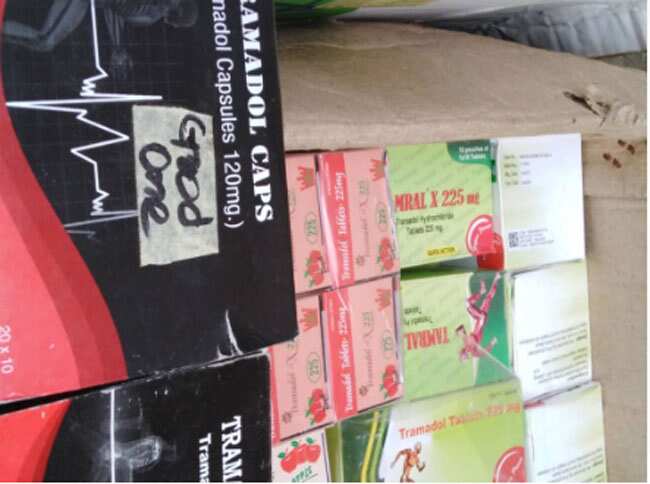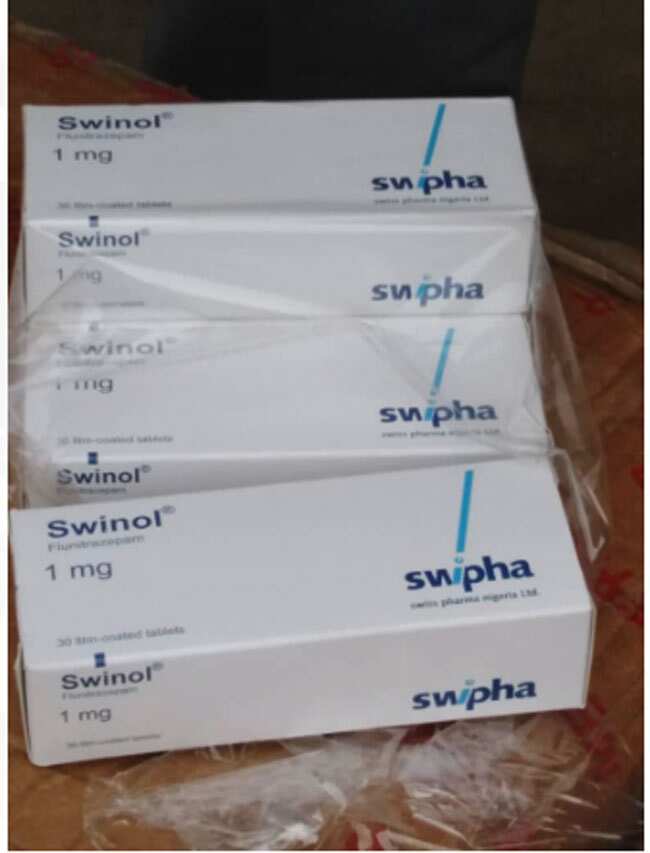- Nigerian Custom Service has impounded a trailer carrying Tramadol and other substances suspected to be illicit drug
- The trailer carrying the items was intercepted by the service’ special strike force along Minna-Suleja road
- Deputy comptroller of Customs, Abdullahi Kirawa, who is the national coordinator of the strike force, said one person has been arrested in connection to the items
The operatives of the Nigerian Customs Service (NCS) in Niger state has impounded a trailer carrying tramadol and other substances suspected to be illicit drug worth about forty-four million naira (N44,000,000).
Channels TV reports that the trailer carrying the items was intercepted by the service’ special strike force along Minna-Suleja road.
READ ALSO: NAIJ.com upgrades to Legit.ng: a letter from our Editor-in-Chief Bayo Olupohunda
Legit.ng gathered that while briefing journalists on the seizure made at the Nigerian Customs Service command headquarters in Minna, the national coordinator of the strike force, deputy comptroller of Customs, Abdullahi Kirawa, said but for the eagle eye of men and officers in his team, the items would have made their way into the society, pointing out what dangers they could pose to the society.

Nigerian Customs Service impounded trailer carrying tramadol, illicit drug worth N44m in Minna, Niger state.
Source: UGC
He said one person has been arrested in connection to the items and that investigation is still ongoing to unravel other culprits.
Kirawa called on members of the public to cooperate with the Nigerian Customs Service and to be vigilant to report any smuggling activities around them.

Nigerian Customs Service impounded trailer carrying tramadol, illicit drug worth N44m in Minna, Niger state.
Source: UGC
The Customs Service strike force coordinator also took members of the press around the warehouse of the showcase other items seized by the team, which include seven hundred and thirty-three bags of foreign rice, eighteen bales of used clothing, vehicles and used tires illegally being smuggled into the country through various routes.

Nigerian Customs Service impounded trailer carrying tramadol, illicit drug worth N44m in Minna, Niger state.
Source: UGC
READ ALSO: Allegations of lack of equipment to fight Boko Haram ill-conceived, misleading - Buratai

Nigerian Customs Service impounded trailer carrying tramadol, illicit drug worth N44m in Minna, Niger state.
Source: UGC
Meanwhile, Legit.ng had previously reported that three cartons of Tramadol 255mg and 1,100 bags of foreign per boiled rice duty worth over 54 million naira in Kaduna state was seized by Nigeria Customs Federal Operation Unit, Zone ‘B’.
NAIJ.com (naija.ng) -> Legit.ng We have upgraded to serve you better.
BUSTED: Police CP seizes, burns N450m worth of hard drug| - on Legit TV
Source: Legit.ng
from Nigeria News today & Breaking Naija news ▷ Read on Legit.ng 24/7 http://bit.ly/2MvZeJ3
via EDUPEDIA24/7
Comments
Post a Comment